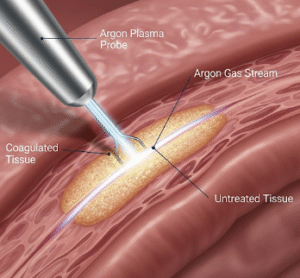Overview
Juvenile Polyposis Syndrome (JPS) is a rare hereditary condition characterized by the development of multiple hamartomatous polyps in the gastrointestinal tract, primarily in the colon and rectum. In South Korea, early diagnosis and proactive management are crucial to prevent complications such as gastrointestinal bleeding, anemia, and increased risk of colorectal cancer. Specialized centers like Seoul National University Hospital, Samsung Medical Center, and Asan Medical Center provide advanced endoscopic, genetic, and surgical care for patients with JPS.
What is Juvenile Polyposis Syndrome?
Juvenile Polyposis Syndrome is an inherited disorder caused by genetic mutations, often in the SMAD4 or BMPR1A genes, leading to the growth of multiple polyps in the gastrointestinal tract. These polyps are benign but can cause significant gastrointestinal symptoms and, in some cases, increase the risk of cancer if left untreated. JPS can affect children, adolescents, and young adults, and may be familial.
Symptoms
- Recurrent rectal bleeding or blood in the stool
- Chronic diarrhea or constipation
- Abdominal pain or cramping
- Iron deficiency anemia due to chronic blood loss
- Rectal prolapse in severe cases
- Unintended weight loss or failure to thrive in children
Causes
- Genetic mutations in SMAD4 or BMPR1A
- Inherited in an autosomal dominant pattern, meaning one affected parent can pass it to children
- Sporadic mutations can occur in some cases without family history
Risk Factors
- Family history of Juvenile Polyposis Syndrome
- Known carriers of SMAD4 or BMPR1A mutations
- Early-onset gastrointestinal symptoms such as bleeding or anemia
- Associated syndromes like hereditary hemorrhagic telangiectasia in some SMAD4 mutation cases
Complications
- Gastrointestinal bleeding leading to chronic anemia
- Intestinal obstruction from large or multiple polyps
- Increased risk of colorectal cancer
- Rectal prolapse or polyp-related prolapse
- Nutritional deficiencies due to chronic bleeding or malabsorption
Prevention
- Genetic counseling for families with known JPS mutations
- Early and regular endoscopic screening for polyps
- Prompt removal of polyps to prevent complications and reduce cancer risk
- Healthy diet rich in fiber to support overall gastrointestinal health
- Awareness of family history to detect early signs in children
Treatment Options in Korea
South Korea offers comprehensive management for JPS through gastroenterology, genetics, and surgical teams:
- Diagnosis:
- Colonoscopy and endoscopic evaluation of the entire gastrointestinal tract
- Biopsy of polyps to confirm histology
- Genetic testing for SMAD4 and BMPR1A mutations
- Imaging studies for assessment of polyp-related complications
- Medical Management:
- Symptomatic treatment of anemia and gastrointestinal discomfort
- Iron supplementation for chronic blood loss
- Regular endoscopic surveillance to monitor polyp growth
- Endoscopic and Surgical Management:
- Polypectomy via colonoscopy to remove polyps and prevent obstruction or cancer
- Colectomy or partial bowel resection in severe cases with numerous polyps or high cancer risk
- Advanced surgical care is available at Samsung Medical Center, Asan Medical Center, and Seoul National University Hospital
- Genetic Counseling and Family Screening:
- Testing of family members to identify at-risk individuals
- Education on surveillance schedules and early detection
- Follow-Up Care:
- Regular colonoscopy every 1–3 years depending on polyp burden
- Monitoring for anemia and nutritional deficiencies
- Long-term surveillance for colorectal cancer













